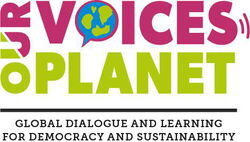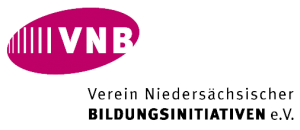
Shaping.Future.Together
Online conference on collaboration in international education partnerships for democracy and sustainability
Part I: 11-12 Dec 2024, Part II: 8-9 May 2025, Online
The online conference consisted of two parts. Each part lasted two days, with four hours per day. It opened a space for around 50 people from the Global South and North to share their perspectives on the future of their joint educational initiatives considering current global challenges. The main focus was on the impact and role of structures, power relations, trust and shared values. These were discussed in the context of international educational networks in general, and the Learn2Change network in particular. Other specific topics included solidarity in international networks and funding for international collaboration. In addition to discussing challenges, participants developed visions for a future educational network that promotes democracy and sustainability. They contributed diverse and valuable perspectives in both plenary and breakout sessions. Expert presentations provided further input. Long-term network members shared their experiences and insights into the structures of Learn2Change and other networks. These networks also presented their work and internal structures.
First part of the conference – power structures, trust, values and the SDGs
These questions guided the first part of the conference:
- What are the success factors for maintaining an international education partnership?
- What is the framework for an international partnership that supports democracy and sustainability? How do we relate to the SDGs? What could our common goals and purposes be?
- How can we build deep trust and what hinders us? How do existing power structures and colonial continuities influence our work in international partnerships?
Two impulses enriched the discussions: One was a presentation by Ruby Hembrom on postcolonial perspectives on the SDGs; the other was a presentation by Ali Al-Nasani on trust and power relations in an international education network.
Second part of the conference – solidarity and finances
The following questions guided the second part of the conference:
- What does solidarity mean in an international education partnership? How can work within education partnerships strengthen civil society?
- How do existing funding structures support and challenge our work? How can we overcome the challenges we face?
One impulse came from Peter Emorinken-Donatus, who provided postcolonial perspectives on solidarity in international education partnerships. The other was again a presentation by Ali Al-Nasani, who discussed financing international education partnerships. Six networks shared insights into their work and experiences over the two days: Peer Leader International, the Global Ecovillage Network, the Ma(g)dalenas – International Network of Theatre of the Oppressed, the Freundeskreis Malawi, Aware & Fair, EIRENE and Learn2Change. A panel discussion at the end gave donors and practitioners the opportunity to talk about bridging opportunities and challenges.
Preparation and facilitation
The conference had been facilitated by Timo Holthoff (www.welt-beziehung-bilden.org).
The programme was prepared by an international team who also played an active role in the conference. In addition to project coordinators Gabriele Janecki and Sarah Laustroer, the following people were also part of the group: Gilbert Kofi Germain, Ruby Hembrom, Sabine Meyer, Geofrey Nsubuga, Maissara Saeed, Joseph Sakala and Julia Wältring.


Supported by funds from:
Engagement Global on behalf of the German Ministry for Economic Cooperation and Development, Brot für die Welt (the Development and Relief Agency of the Protestant Churches in Germany), and the Catholic Fund.





